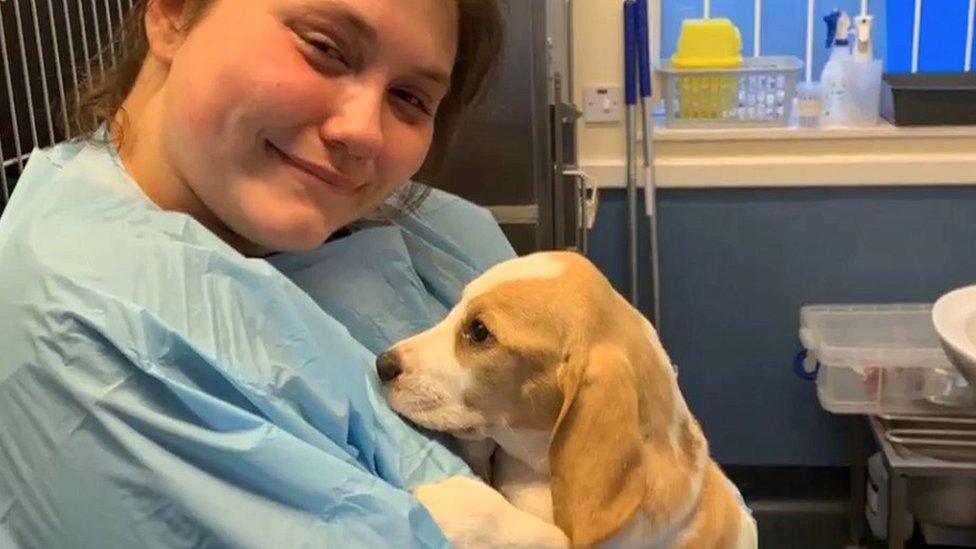Wales' dog day care licence rules 'decades old', RSPCA say
- Published
Dog day care licensing laws "endangering animal welfare"
The rules around pet day care are almost six decades old and need updating, the RSPCA has said.
Samantha Gaines, from the charity, said pet boarding standards are not clearly linked to animal welfare standards.
It comes as a business owner claimed the laws are "endangering" public safety and animal welfare.
The Welsh Government said it recognised the need to review the licensing of activities involving the boarding of animals.
However it said this needed to be done with a measured approach, and its recent focus had been to introduce new powers relating to the third-party sale of kittens and puppies.
"This outdated legislation is no longer representative of the way many animals are cared for, how the industry now operates or societal expectations," Dr Gaines said.
"While the Welsh Government bringing forward a law to ban the third party sale of puppies and kittens in Wales... is a welcome first step, the RSPCA continues to urge ministers in Wales to go further."
Why does it matter?
Since the law governing pet care in Wales was introduced in the early 1960s, the industry has evolved and this has led to variations in how the law is interpreted across Wales.
That means costs for a licence can range from £63 to £643, boarding with small children on the premises allowed in some areas but not in others, there's a lack of clear minimum fence heights and insurance is not always mandatory.
Other issues include a lack of guidelines on dogs being separated at night, cats and dogs from different households allowed to board together and some authorities do not specify whether dog waste must be disposed of commercially and allow it to be put in domestic waste.
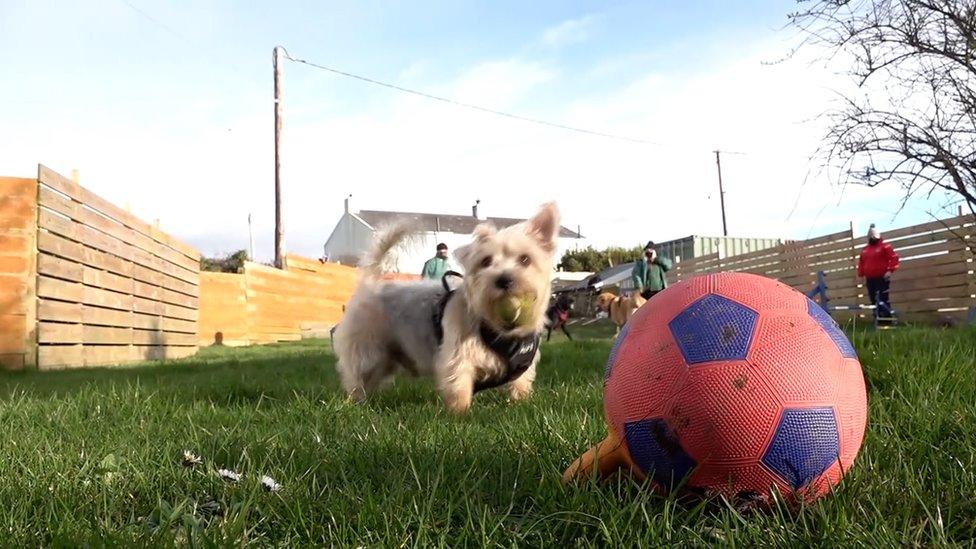
The cost of a dog day care licence can vary across Wales
Steve Belgrau, who runs The Pet Joint company in Bylchau near Denbigh, said to make matters worse a number of councils do not recognise dog day care as a distinct service and at least two - Flintshire and Wrexham - do not recognise it as a licensable activity at all.
Flintshire said it intends to review its regulations and Wrexham was not able to respond.
The Welsh Local Government Association (WLGA), which represents councils, said other laws ensured animals' needs are met.
Mr Belgrau, who made Freedom of Information requests to every local authority in Wales asking how they regulate day care services, found their interpretations varied.
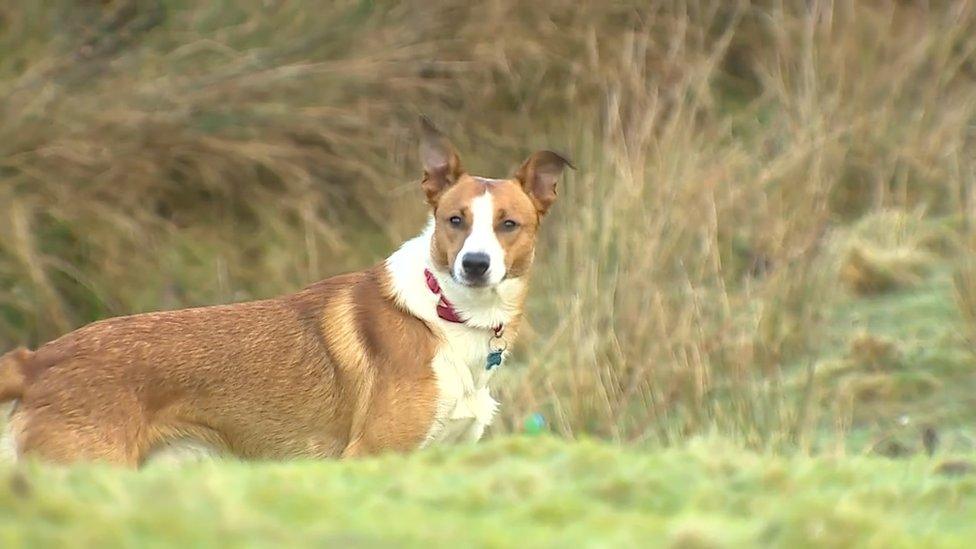
There is likely to be an increase is the use of dog day care after people adopted pets during the pandemic, Steve Belgrau said
Three viewed it as a distinct service requiring a separate licence, 12 included it under home boarding licences and others did not provide any information at all.
"If you are providing care for someone's pets and that's the main business for that person, that must be licenced by the local authority," Mr Belgrau said.
He said councils that were not recognising day care as a licensable activity as is written in law were "actually endangering public safety and endangering animal welfare".
"All it takes is for a dog to escape from an unlicensed property and then it's a case of a blame game," he added.
"There's massive need for the legislation to be updated, it's no longer fit for purpose. We're talking about 1963, it's now 2021. It needs an overhaul."
During the lockdown Mr Belgrau has been caring for the dogs of key workers only.
'Pet care has increased massively'
But he said a recent increase in dog ownership during lockdowns made updating the rules more urgent as people start returning to workplaces.
"In the pandemic pet care has increased massively and that means as we come out of the situation there's going to be an increased demand for professional pet care services," he added.
"So it's even more important than ever that those services are regulated for public safety and animal welfare."
In England the law was updated in 2018 to include dog day care as a separate service and some organisations are urging the Welsh Government to do the same with its upcoming legislation.
What is the reaction from the industry and government?
Alexandra Baker, of trade association Pet Industry Federation, said: "It is disappointing. We perhaps assumed it would be included.
"Within day care where you've got animals mixing together, it does present particular challenges."
The association wants to see one local authority in Wales lead others in the interpretation of the 1963 Act.
"The primary authority would provide advice and information for both local authorities and businesses to help them meet the regulations in a better and more effective way," she added.
"It's not a perfect solution but it would help apply the 1963 Act in a slightly more standardised way."
The Welsh Government said animal boarding was currently a matter for local authorities, but its new legislation would provide a mechanism for future changes to other licensing law.
The WLGA said animal health officers can use their powers to investigate anyone who does not have proper regard for the health and welfare of animals.

HORIZONS TOUR OF WALES: Visit some of Wales' most beloved independent venues
MAKE A DIFFERENCE : Donate a laptop to pupils across Wales

- Published5 October 2020
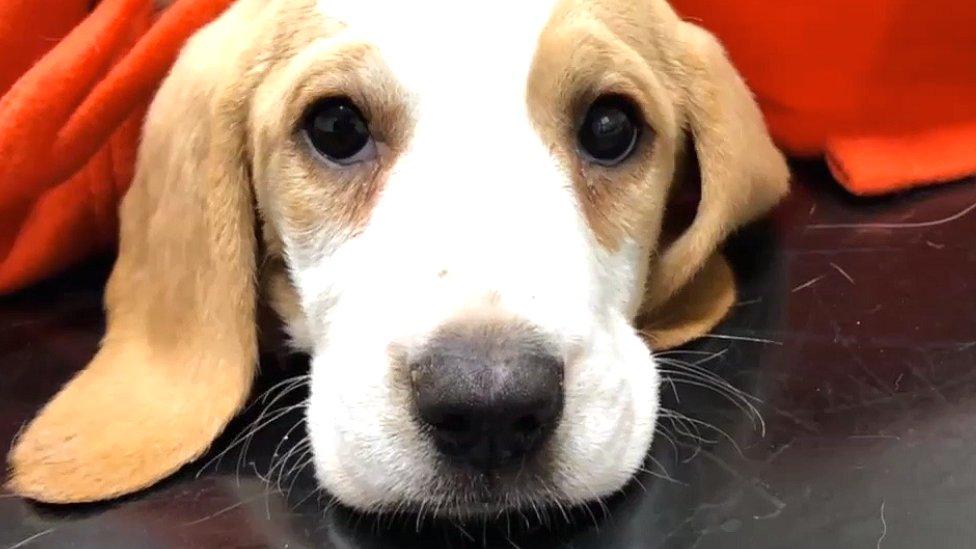
- Published24 December 2019
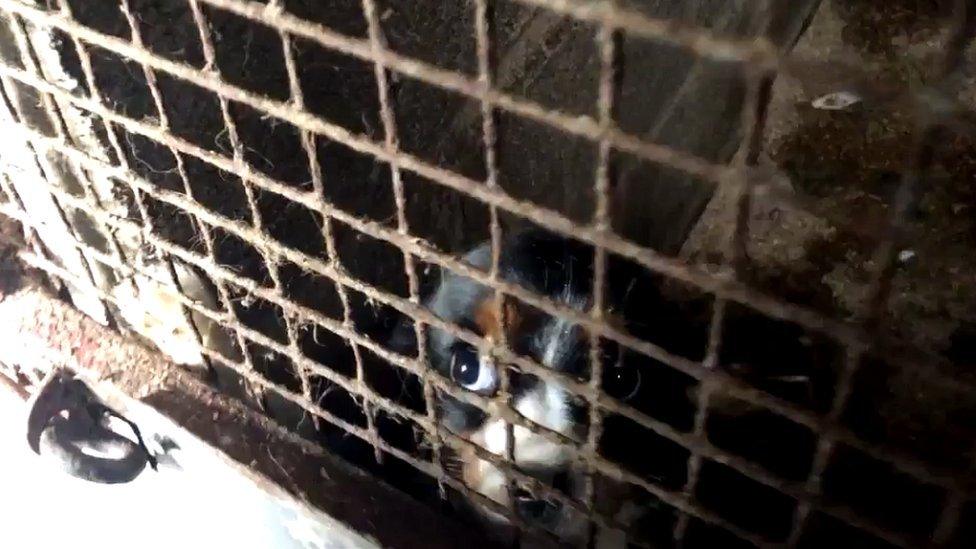
- Published30 September 2019
